Introduction — Why Timing Is Everything
In Malaysia’s humid, equatorial climate, a well-planned tree-pruning schedule is the difference between lush, fruit-laden canopies and disease-ridden eyesores. Because decay fungi thrive in warm, wet conditions, the right month to prune depends on both regional monsoon patterns and each species’ flowering or fruiting cycle. This comprehensive calendar—compiled by EcoTrim’s ISA-certified arborists—explains exactly when (and how) to prune 12 of the country’s most-loved trees, from mango and durian to frangipani and royal poinciana.
Pro tip: Bookmark or print the Quick-Look Calendar below for easy reference, and schedule a free on-site assessment whenever you’re ready to let the pros handle the heavy lifting.
Malaysia’s Two Monsoon Seasons at a Glance
| Monsoon | Months | Weather Highlights | Pruning Notes |
|---|---|---|---|
| Northeast | November – March | Long, soaking rains—especially along the east coast | Delay major cuts; saturated wood invites pathogens. |
| Southwest | May – September | Shorter, more scattered storms | Prime window for structural and corrective pruning. |
Average temperatures hold steady between 25 – 33 °C all year, so humidity management is key.
Quick-Look Tree-Pruning Calendar (Cheat Sheet)
| Month | Ideal Species to Prune |
|---|---|
| January | Rain Tree, Neem |
| February | Frangipani (light shaping), Banyan |
| March | Mango (south), Jackfruit |
| April | Langsat, Guava |
| May | Durian (west coast), Rambutan |
| June | Banyan (structural), Royal Poinciana |
| July | Coconut Palm, Mango (north) |
| August | Rambutan (secondary harvest), Neem |
| September | Guava, Rain Tree |
| October | Durian (off-season trim), Langsat |
| November | Jackfruit (light), Frangipani (hard cut) |
| December | Coconut Palm, Royal Poinciana |
(Clip and stick this table near your garden tools!)
Five Golden Rules of Tropical Tree Pruning
- Cut After Harvest – Fruit trees like mango and durian rebound fastest right after fruiting.
- Watch the Weather – Schedule significant cuts during expected dry spells to curb fungal infections.
- Keep 30–40 % Foliage – In the tropics, leaves are solar panels; never “lion-tail” or strip a canopy bare.
- Sanitise Tools – A quick bleach dip or alcohol wipe between trees prevents cross-contamination.
- Use the 3-Cut Method – For limbs thicker than 5 cm, an undercut, top cut, then final clean cut stops bark tearing.
Species-by-Species Guide
Mango (Mangifera indica)
Best time: March (southern regions) | July (northern regions)
Objectives:
- Thin the dense inner canopy to boost air flow and reduce Anthracnose.
- Maintain a pyramidal shape 4–6 m tall for easy harvesting.
Common mistake: Topping the tree. Always favour selective thinning over flat-top cuts.

Rambutan (Nephelium lappaceum)
Best time: May and August (right after primary & secondary harvests)
Objectives:
- Shorten scaffold branches by 20 % so fruit stays within arm’s reach.
- Remove deadwood to deter fruit borers.
Watch-out: If new blossom spikes have formed, postpone cutting or risk losing your next crop.
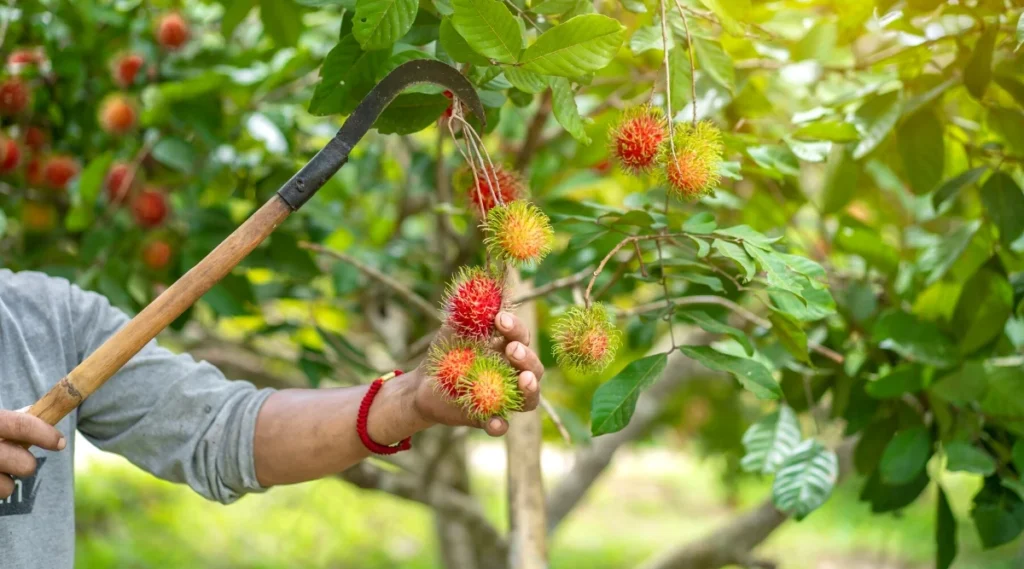
Durian (Durio zibethinus)
Best time: May (west coast estates) and October (east coast or off-season)
Objectives:
- Lift the canopy lightly to improve light penetration.
- Excise limbs showing Phytophthora canker.
Safety tip: Durians are armour-plated—use rope access or a bucket truck and full PPE.
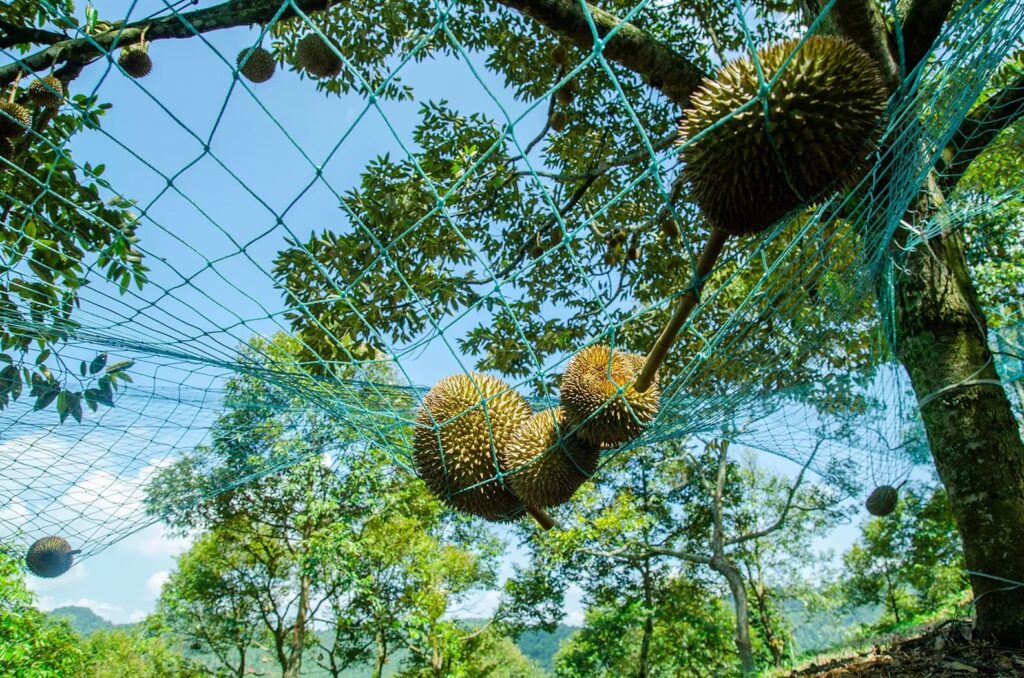
Frangipani (Plumeria obtusa)
Best time: Light shaping in February; hard rejuvenation cut in November
Objectives: Control height and stimulate branching for next year’s blooms.
Mistake: Flush cuts; leave a 0.5 cm stub on hollow stems to prevent rot.
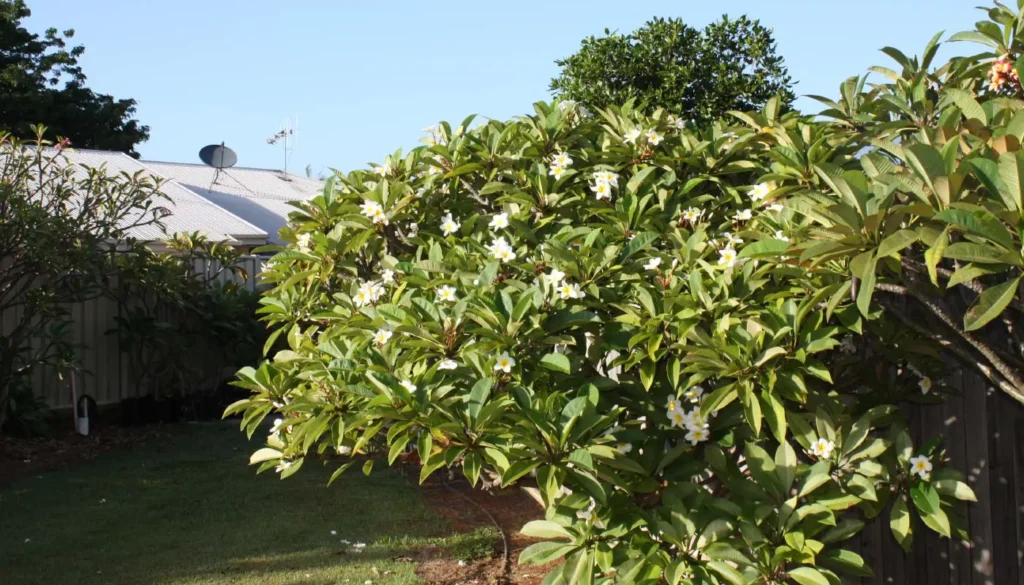
Banyan (Ficus benghalensis)
Best time: February and June
Objectives:
- Trim aerial roots before they thicken into sidewalk-lifting props.
- Reduce end-weight on heavy laterals to avoid structural failure.
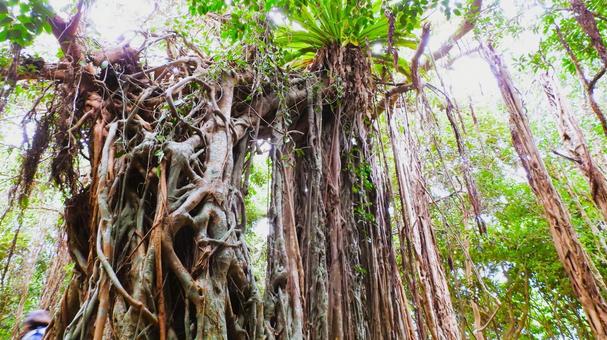
Rain Tree (Samanea saman)
Best time: January and September
Objectives:
- Raise canopy over roads and car parks; maintain sightlines.
- Reduce long limbs that catch heavy monsoon winds.
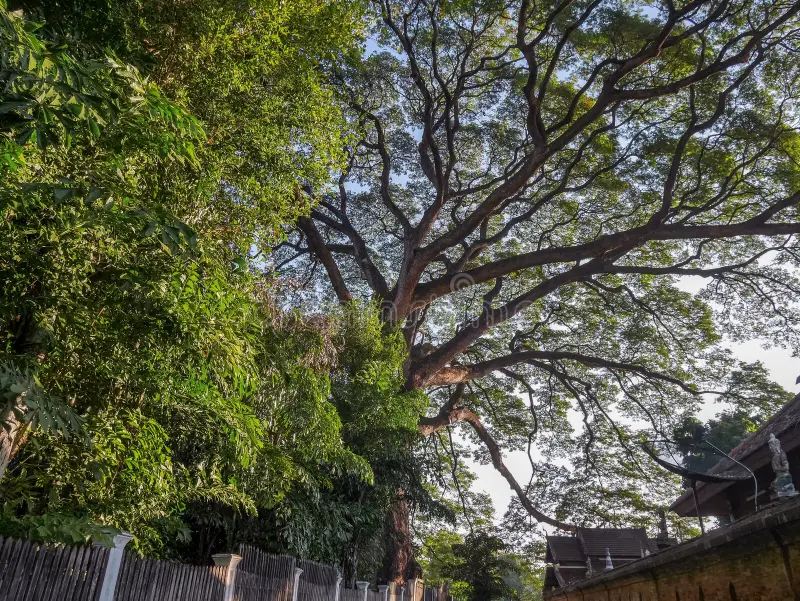
Neem (Azadirachta indica)
Best time: January and August
Objectives:
- Keep size manageable; harvested twigs double as organic pesticide material.
- Remove mistletoe parasites early.
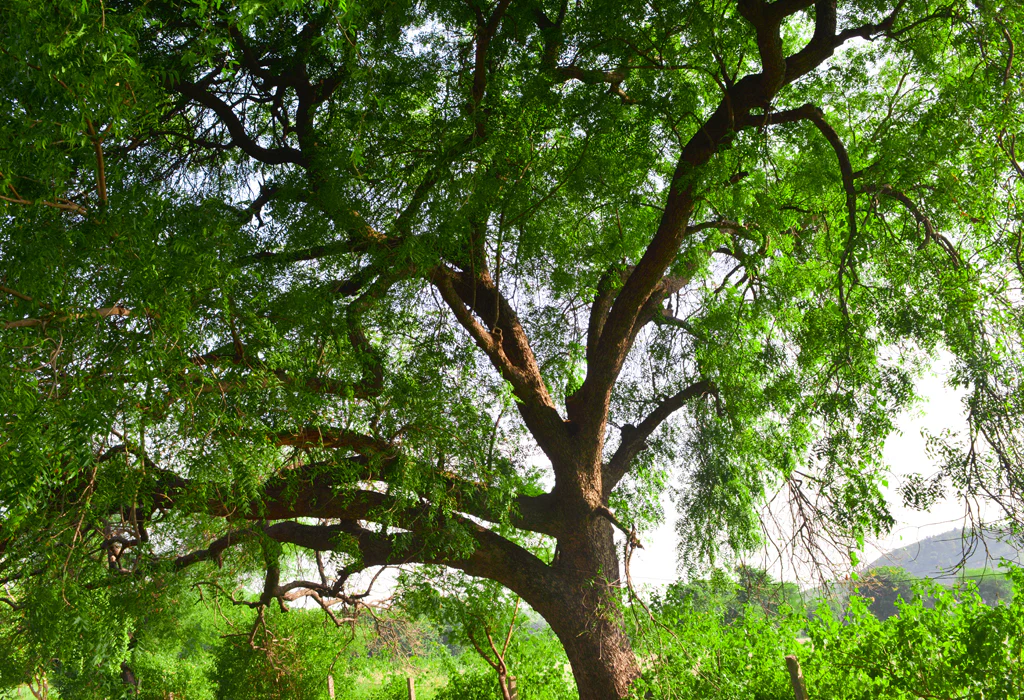
Jackfruit (Artocarpus heterophyllus)
Best time: March and November
Objectives:
- Cap leader height at 3–4 m for safer fruit bagging.
- Thin interior for sweeter, sun-ripened fruit.

Guava (Psidium guajava)
Best time: April and September
Objectives:
- Spur new shoot growth for larger fruit count.
- Remove water-sprouts and basal suckers promptly.

Langsat / Duku (Lansium domesticum)
Best time: April and October
Objectives:
- Light trims only; this species heals slowly.
- Clear lichen-laden deadwood to prevent moisture build-up.

Coconut Palm (Cocos nucifera)
Best time: July and December
Objectives:
- Remove yellowing fronds and mature coconuts to prevent injury.
- Retain at least 12 healthy fronds—avoid the dreaded “hurricane cut.”

Royal Poinciana (Delonix regia)
Best time: June and December
Objectives:
- Train young trees to a single leader for a strong scaffold.
- After flowering, remove heavy seed pods and lighten long laterals.

Frequently Asked Questions
Is pruning during the monsoon ever safe?
Light deadwood removal is acceptable, but postpone large cuts until a 3–5-day dry stretch.
Can I prune mango trees every year?
Yes. Annual light thinning keeps canopies airy and fruit accessible without shocking the tree.
Do I need council permission for tree work?
Urban councils such as DBKL usually require a permit for trunks over 1 m girth or trees under a Tree Preservation Order. EcoTrim handles paperwork for you.
What’s the difference between thinning and topping?
Thinning removes selective interior branches, preserving the tree’s natural form. Topping lops off the canopy indiscriminately, causing weak, fast-growing “water shoots.”
Ready to Book Your Pruning Slot?
A science-backed tree pruning Malaysia calendar keeps your landscape healthy, storm-safe, and fruit-productive. For hassle-free service—from permit applications to eco-friendly disposal—schedule a free on-site assessment with EcoTrim today.
Call/WhatsApp: +60 12-345 6789
Email: info@ecotrim.my
Service areas: All Across Malaysia
Cut at the right time now, and your trees will reward you all year long.
Leave a Comment
Required fields are marked *